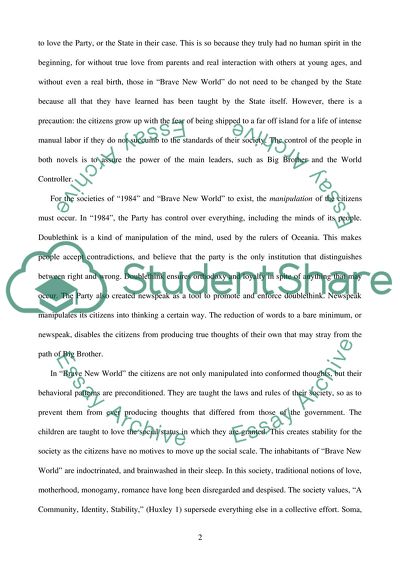Cite this document
(The Contrasts of 1984 and a Brave New World Coursework, n.d.)
The Contrasts of 1984 and a Brave New World Coursework. https://studentshare.org/literature/1704089-compare-and-contrast-of-1984-and-a-brave-new-world
The Contrasts of 1984 and a Brave New World Coursework. https://studentshare.org/literature/1704089-compare-and-contrast-of-1984-and-a-brave-new-world
(The Contrasts of 1984 and a Brave New World Coursework)
The Contrasts of 1984 and a Brave New World Coursework. https://studentshare.org/literature/1704089-compare-and-contrast-of-1984-and-a-brave-new-world.
The Contrasts of 1984 and a Brave New World Coursework. https://studentshare.org/literature/1704089-compare-and-contrast-of-1984-and-a-brave-new-world.
“The Contrasts of 1984 and a Brave New World Coursework”. https://studentshare.org/literature/1704089-compare-and-contrast-of-1984-and-a-brave-new-world.


